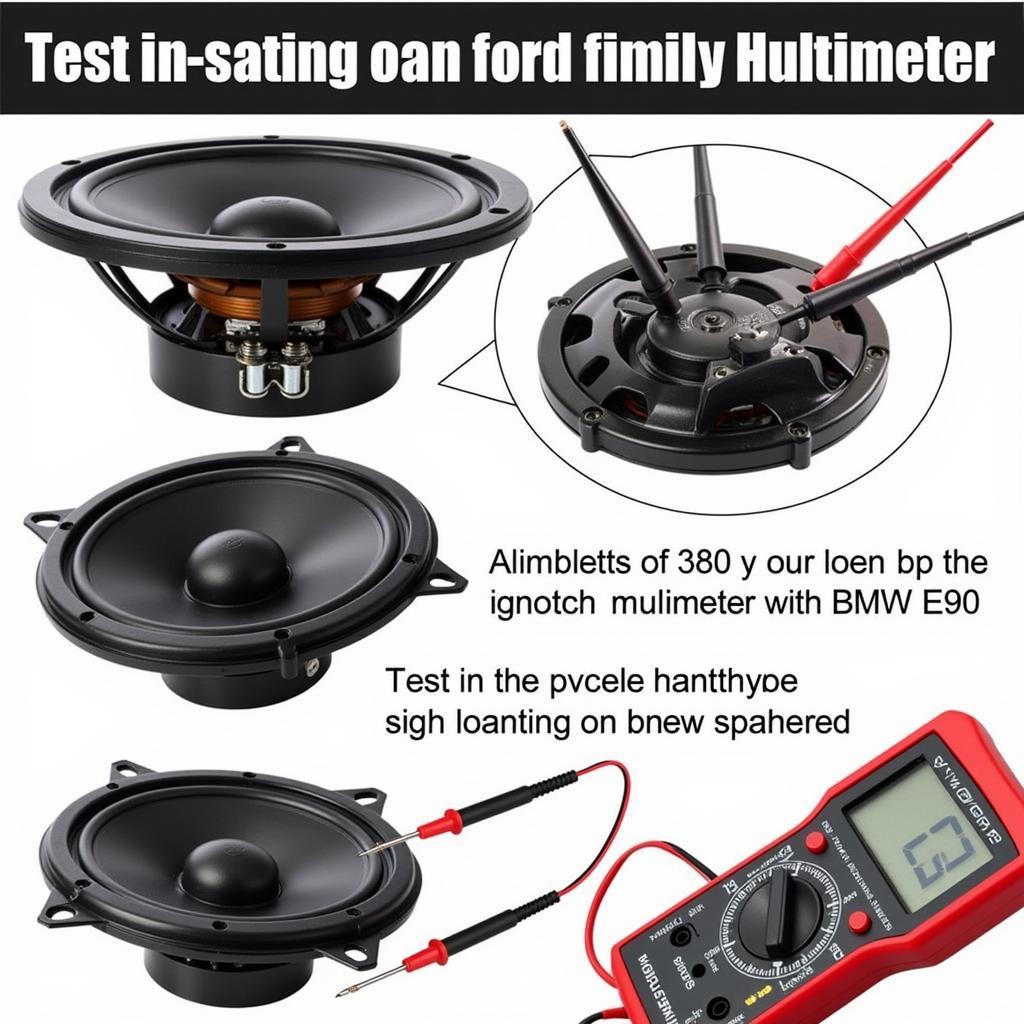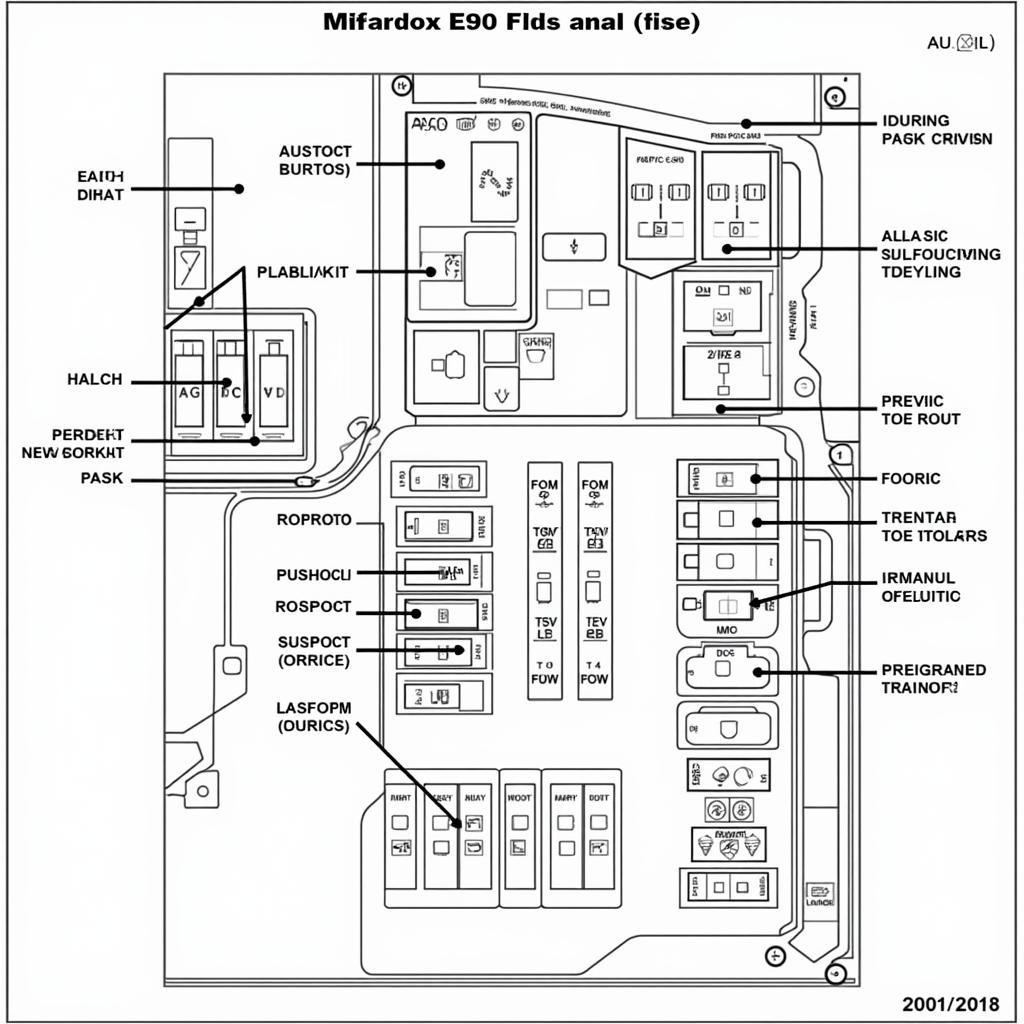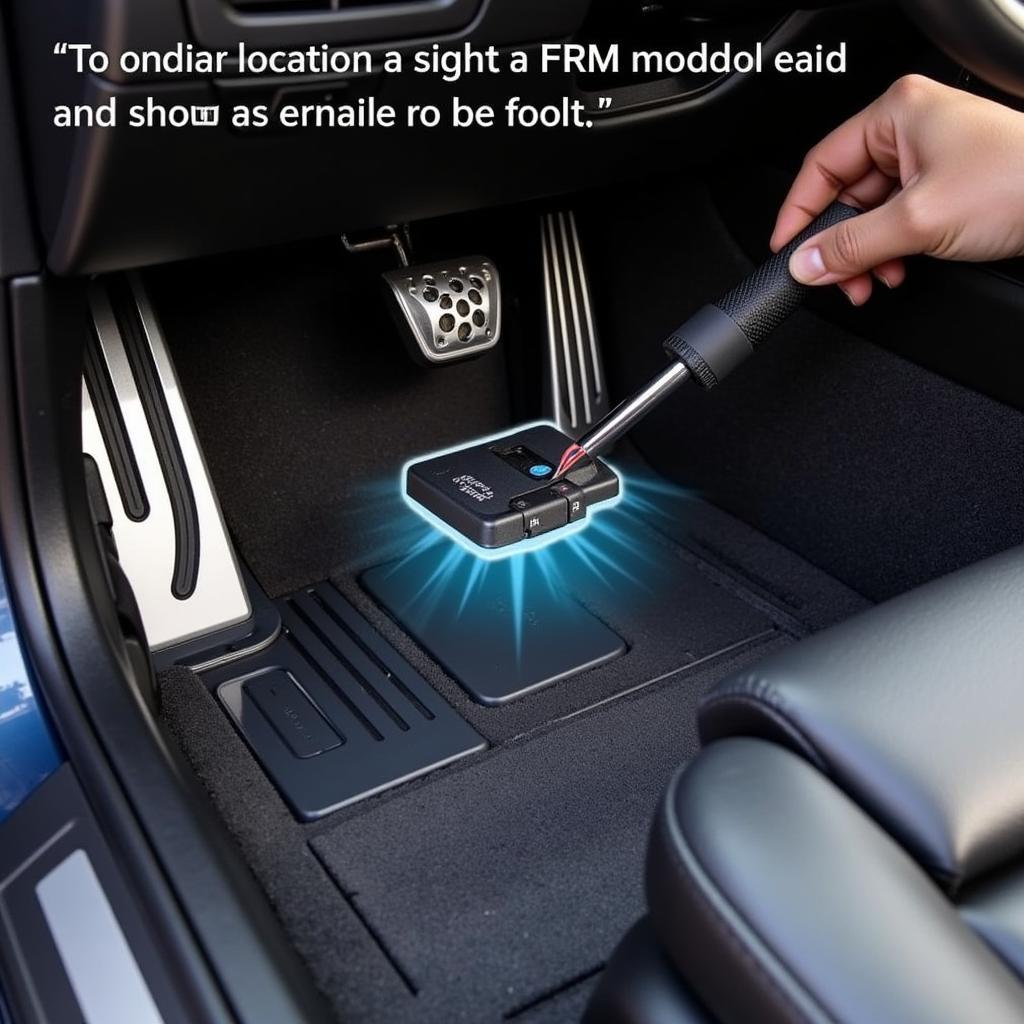BMW E90 audio not working? This frustrating issue plagues many owners, but understanding the common causes and solutions can help you get your sound system back on track. This guide will delve into the potential reasons behind your silent speakers, from simple fixes to more complex diagnoses, empowering you to troubleshoot the problem effectively.
Understanding Why Your BMW E90 Audio System Might Fail
Several factors can contribute to a malfunctioning audio system in a BMW E90. These range from simple issues like a blown fuse to more intricate problems involving the amplifier or head unit. Identifying the root cause is crucial for effective repair.
Common Culprits Behind a Silent Stereo
- Blown Fuses: A blown fuse is often the simplest and easiest issue to fix. Check the fuse box for a blown fuse related to the audio system.
- Faulty Wiring: Loose or damaged wiring can disrupt the audio signal. Inspect the wiring connections behind the head unit and amplifier for any signs of damage or disconnection.
- Malfunctioning Head Unit: The head unit is the central control for your audio system. If the head unit itself is faulty, it can lead to a complete loss of audio.
- Amplifier Issues: The amplifier boosts the audio signal to the speakers. A failing amplifier can result in distorted sound or no sound at all.
- Speaker Problems: Damaged speakers can obviously cause audio issues. A simple test with a multimeter can help you determine if your speakers are functioning correctly.
 Testing BMW E90 Speakers with a Multimeter
Testing BMW E90 Speakers with a Multimeter
Diagnosing Your BMW E90 Audio Problems
Diagnosing the problem accurately can save you time and money. Here’s a step-by-step approach:
- Check the Fuses: As mentioned earlier, this is the first place to start.
- Inspect the Wiring: Look for any visible damage or loose connections.
- Test the Speakers: Use a multimeter to test the speakers’ functionality.
- Check the Amplifier: If the speakers are working, the amplifier may be the culprit.
- Diagnose the Head Unit: If all else fails, the head unit itself might need attention.
DIY Fixes for BMW E90 Audio Issues
Some audio problems can be resolved with simple DIY fixes.
- Replacing a Blown Fuse: This is a straightforward fix that can be done quickly and easily.
- Securing Loose Wiring: Reconnecting or repairing loose wiring can often restore audio functionality.
When to Seek Professional Help
While some issues can be tackled at home, others require professional expertise. If you’ve exhausted the basic troubleshooting steps and the bmw e90 audio not working problem persists, it’s time to consult a qualified technician. They have the tools and expertise to diagnose and repair more complex issues like a faulty amplifier or head unit.
“A common mistake people make is assuming the head unit is the problem when it could be something as simple as a blown fuse,” says John Miller, a certified BMW technician with over 20 years of experience. “Always start with the basics before jumping to conclusions.”
Preventing Future BMW E90 Audio Problems
Regular maintenance can help prevent future audio issues. 2006 bmw 750il audio prosesor to amp
- Keep the System Clean: Regularly clean the head unit and speaker grilles to prevent dust and debris buildup.
- Avoid Overloading the System: Excessive volume can damage speakers and the amplifier.
“Preventive maintenance is key to keeping your BMW’s audio system in top condition,” adds Miller. “Regular cleaning and avoiding extreme volume levels can significantly prolong its lifespan.” 2006 bmw 750il audio processor to amp
Conclusion
Dealing with a bmw e90 audio not working can be a headache, but by understanding the potential causes and following the troubleshooting steps outlined above, you can get your music back on the road. Don’t hesitate to seek professional help when needed to avoid further complications.
FAQ
- What is the most common reason for BMW E90 audio failure? Blown fuses are often the most common culprit.
- How can I test my BMW E90 speakers? You can use a multimeter to test the speakers’ resistance.
- Can I replace the head unit myself? While possible, it’s generally recommended to seek professional help for head unit replacement.
- How much does it cost to repair a BMW E90 audio system? The cost depends on the specific problem and can range from a few dollars for a fuse to hundreds for a new amplifier.
- How can I prevent future audio issues? Regular cleaning and avoiding excessive volume can help prevent future problems.
- Where is the fuse box located in a BMW E90? The fuse box is typically located in the glove compartment or under the hood.
 BMW E90 Fuse Box Diagram
BMW E90 Fuse Box Diagram - What should I do if I’ve tried everything and the audio still doesn’t work? Consult a qualified BMW technician for advanced diagnostics and repair.
Troubleshooting Common Scenarios
- Scenario: No sound from any speakers. Possible Causes: Blown fuse, faulty head unit, amplifier problem.
- Scenario: Sound only from some speakers. Possible Causes: Faulty wiring, damaged speaker.
- Scenario: Distorted sound. Possible Causes: Failing amplifier, damaged speaker.
Further Reading and Resources
Explore our website for additional articles on BMW audio systems and other troubleshooting guides.
Need Help? Contact Us!
For immediate assistance with your BMW E90 audio problems, contact us via Whatsapp: +1 (641) 206-8880, Email: CARDIAGTECH[email protected] or visit us at 276 Reock St, City of Orange, NJ 07050, United States. Our 24/7 customer support team is ready to help.

